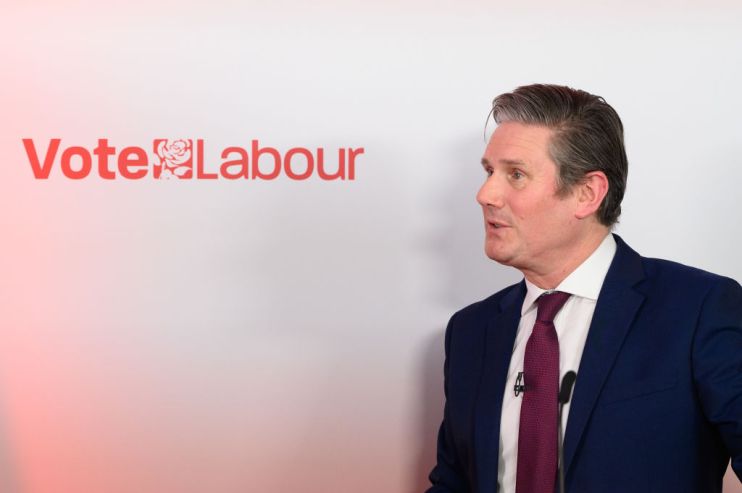The fight for the City: Can Labour challenge the orthodoxy of a pro-business Conservative Party

Free market purists dismiss it as “woke capitalism”. But could a thriving concern in the City for the health of the planet and for social justice pose an opportunity for the Labour Party?
The Square Mile is traditionally caricatured as Tory territory – never an entirely accurate assumption, given its young, multicultural workforce with a broadly socially liberal outlook.
Since Labour’s change of leadership, Keir Starmer’s top team has been vigorously courting the financial community. In a change of tone from her predecessor, Anneliese Dodds, the Shadow Chancellor, has declared she wants a “genuine partnership” with financial services to build a green economy, praising their role in helping young people to build financial resilience.
The timing for a left-of-centre pitch to finance looks promising. Over the last 12 months, a deluge of capital has flowed towards environmental, social and governance (ESG) focused investments – total assets in sustainable funds rocketed by 50 per cent to $1.7tn last year.
Bloomberg has described the shift as “one of the biggest transfers in capital the world has ever seen”. Boardrooms are waking up to the challenge posed by climate change not just to sea levels and ambient temperatures but to the future of their own businesses and customers. As Blackrock’s Larry Fink puts it, “climate risk is finance risk”.
Movements such as Black Lives Matter and MeToo have prompted the business community to recognise that they have a role in diversity beyond simply doing no harm. The work from home practices required in response to the COVID-19 pandemic has also dissolved the distinction between work, home and community.
In a collection of essays published by Labour in the City this week, John Fallon, the former Chief Executive of Pearson, argues that a generational shift is taking place: “US corporate leaders are finally ditching the absolute focus on shareholder value popularised by General Electric’s Jack Welch in favour of a more rounded commitment to the needs of their consumers, communities and employees”.
This cultural shift away from an Adam Smith-style free market is a tricky one for the Conservatives. Although environmental and social concerns might chime with the Government’s agenda, a close association with financiers doesn’t play well to the Red Wall these days and anything that looks “woke” must be treated with disdain.
The City Minister, John Glen, seems to be struggling with that dilemma – he turned up recently at the Social Market Foundation to temper praise for the growth of socially conscious investing with a stern warning against what he described as “woke capitalism”, catering to the concerns of a “metropolitan elite” which he claimed was “ignorant of the world outside the M25”.
It’s a rather more comfortable position for Pat McFadden, the Shadow City Minister, who has made a point of heaping praise on ESG investment since his appointment last summer. McFadden has declared that the Conservatives can no longer describe themselves as a “pro business party” after Britain’s financial services industry was largely left out of the recent trade deal with the EU.
Within finance, it may surprise some that membership of Labour in the City, a network for left-leaning people in financial services, is approaching 800, after a jump in new joiners since Starmer became leader.
Matt Killeya, a mathematician who formerly managed £4.5bn of investments at Cantab Capital Partners, remarks that as a Labour supporter, he often viewed the City as a “reverse echo chamber”, and that it was always a unexpected surprise to stumble upon a fellow Labour sympathiser.
Attitudes within the City are changing, with Huw Evans, director-general of the Association of British Insurers, praising Labour’s green recovery plans and saying that the party has a “vital role to play” in working with financial services to develop new policy.
Labour under its last leadership was a tough sell to the City, in spite of efforts by John McDonnell to present himself as a friendly bank manager reluctantly offering difficult home truths.
Although Labour’s policy platform is still in flux, the message has changed markedly – there is much less talk now of nationalising industry or of a unilateral UK tax on financial transactions, and much more of helping young people to save responsibly, and of working together to improve standards of corporate behaviour.
What McDonnell termed his “cup of tea offensive” in boardrooms has, through circumstance, become a Zoom offensive under Anneliese Dodds. But with investment attitudes shifting, the Conservatives distracted and Labour’s message now much more of partnership, there are signs that the audience is paying attention.